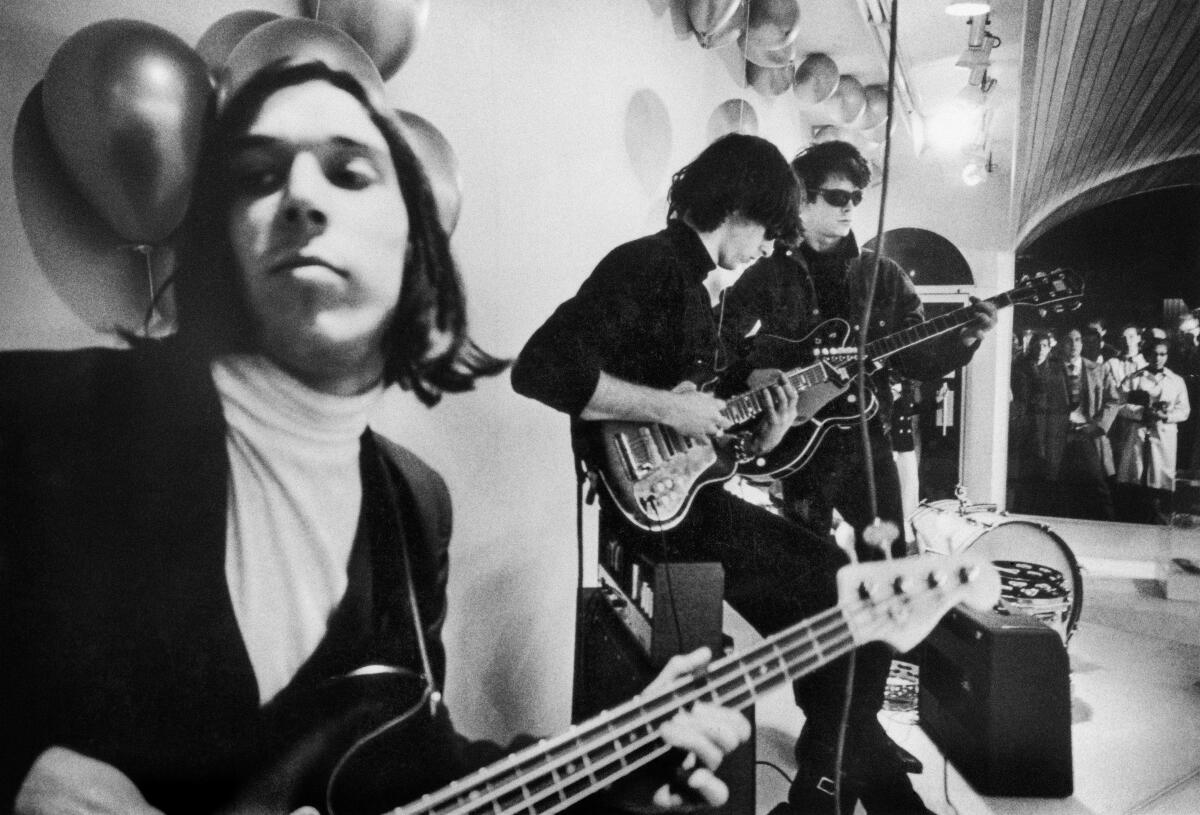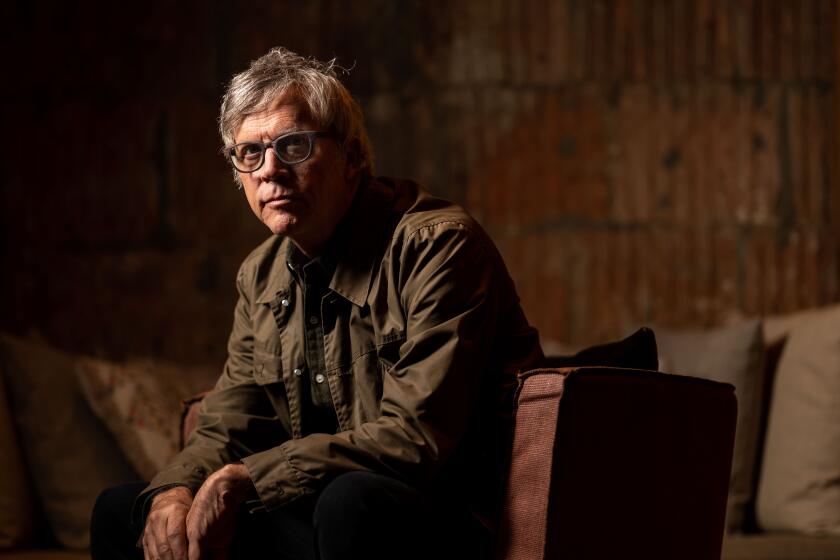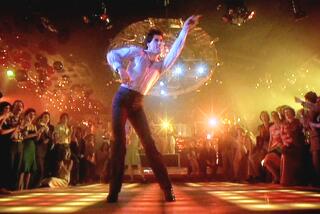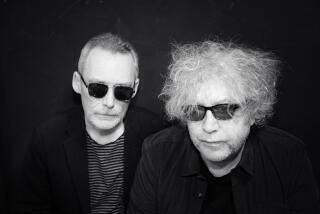Review: Spellbinding, experiential ‘Velvet Underground’ digs into seminal band and its time

The Times is committed to reviewing theatrical film releases during the COVID-19 pandemic. Because moviegoing carries risks during this time, we remind readers to follow health and safety guidelines as outlined by the Centers for Disease Control and Prevention and local health officials.
So many music documentaries today are machine-stamped plaques rewarding popularity and ego that when encountering a genuine film, a work of art about artists and artmaking, you’re jolted awake by what’s breathed into a slice of cultural history. Such is Todd Haynes’ sensory gem “The Velvet Underground,” about the notorious and influential Lou Reed/John Cale-led ‘60s rock outfit whose revelatory sounds, lyrics and Andy Warhol-mentored image helped define a radical era’s ecstatic transgressions.
With Sterling Morrison on guitar and Moe Tucker on drums, the Velvets were a sonic manifesto as much as they were a band. The seminal, churning tracks from their 1967 debut album with Warhol’s signed banana on the cover — “Heroin,” “I’m Waiting for the Man,” “Venus in Furs,” “All Tomorrow’s Parties,” with German chanteuse Nico’s androgynous moan alternating lead vocals with Reed — both entranced and shocked with a rough hum and spiky depictions of the cool, stark and dangerous. They were also beneficiaries of an elevated, multi-disciplinary New York art scene with a clubby vibe. In those fascinating contrasts they learned, says Cale, “how to be elegant and how to be brutal.”
Haynes, one of cinema’s true visionaries regarding outsider hearts (“Poison,” “I’m Not There,” “Far From Heaven”), is an ideal chronicler to tackle the creative legacy of the Velvets, famously tagged (by Brian Eno) as the group that didn’t sell many albums but inspired each record buyer to start their own band. But that influence (manifest here in the giddy memories of superfan interviewee Jonathan Richman) came from the original confluence of taste and experience represented by Cale partnering with Reed — the former’s Welsh darkness and the latter’s polysexual urban angst, the avant-garde with the street-real, classical fused with bar rock, and all filtered through the transportive possibilities of drugs and droning. Add Warhol, stir.
On Friday, AppleTV+ will premiere ‘The Velvet Underground,’ acclaimed director Todd Haynes’ documentary on the band’s origins, influences and music.
The movie is its own collage, too, and breathtakingly so. It’s not some wasn’t-that-a-time collection of anecdotes, but a percolating dream of invention made tantalizingly present through Haynes’ and editors Affonso Goncalves and Adam Kurnitz’s evocative blend of archival footage, artistic references, interviews (on-camera with surviving members Cale and Tucker, via voice from Reed and Morrison), and all that music.
Foregrounding the movie visually is Haynes’ masterful use of a restless, size-shifting split screen as a language of juxtaposition, connection and time travel, from which the musical cues can either whisk us into a scene-setting mood or, as when we hear early versions of notable compositions, underscore the evolution of a song. The cascade of imagery — from era-specific ads and the Warhol oeuvre to the work of counterculture gods Jonas Mekas, Kenneth Anger, Barbara Rubin and others — is hypnotically deployed, putting us in the mind-set of creatives who saw possibilities everywhere.
No one talks for too long, their memories and insights just enough to fill in the mosaic with a key psychological coloring or flash of personality. (Special mention to the reclusive Tucker for vocalizing the band’s hatred of the West Coast scene’s “peace and love crap” as still irritated.) But also, gripes don’t feel gossiped, and discord isn’t sensationalized, even as the band turned its disdain inward, morphed, then disintegrated. Haynes loves his subject(s) too much to revel in a juicy breakup, but more necessarily, it seems, he respects the abiding worth of collaboration, even when it’s a clash, and the lightning is short-lived.
The spiritual truth of Haynes’ spellbinding “The Velvet Underground” is that ultimately it’s about the thing that can’t be described, that defies parsing when gifted outcasts make great art — it’s to be experienced. Yet that doesn’t mean rooting through the tapes, the films, the photographs, the lives, the memories, trying to capture what it was all about, isn’t its own meaningful, mesmerizing exploration, and its own thing. It’s why I’m liable to think that no matter how many people take in Haynes’ vivid paean, Eno’s exponential assessment of the Velvets could apply here, too: After seeing this, who wouldn’t want to follow their muse?
'The Velvet Underground'
Rated: R, for language, sexual content, nudity and some drug material
Running time: 2 hours, 1 minute
Playing: Starts Oct. 15, Landmark Nuart, West Los Angeles; Laemmle Theatres, Santa Monica, Pasadena, Glendale, Claremont, Newhall; Frida Cinema, Santa Ana, CA; also available on Apple TV+
More to Read
Only good movies
Get the Indie Focus newsletter, Mark Olsen's weekly guide to the world of cinema.
You may occasionally receive promotional content from the Los Angeles Times.








